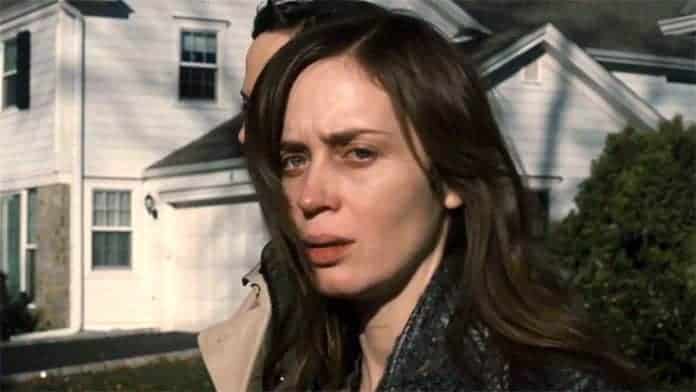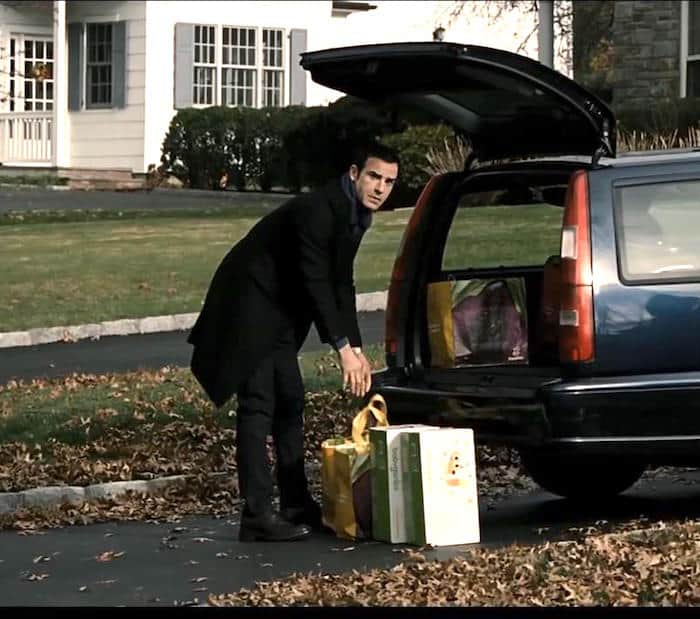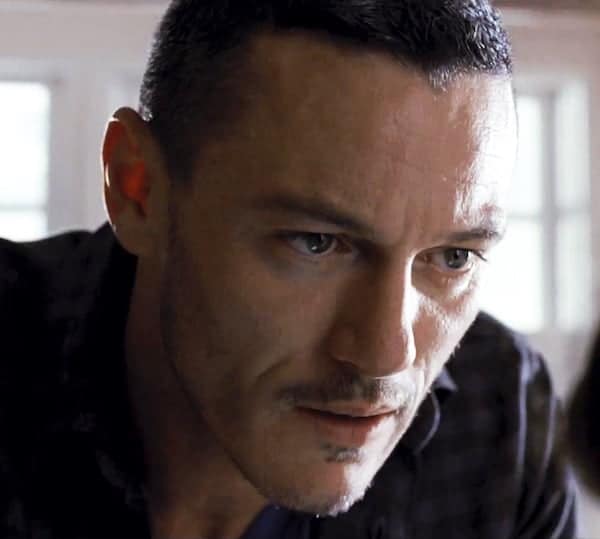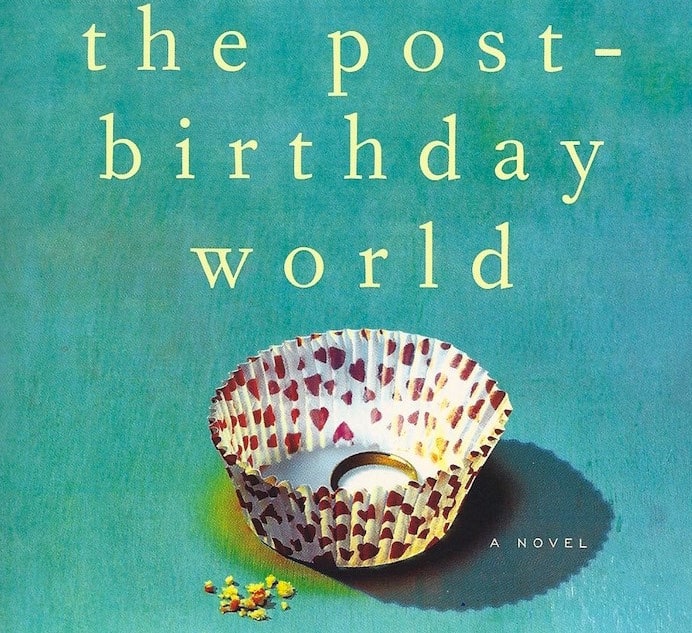
by Christina Waters | Nov 8, 2016 | Home |
In our zeal to clean up, throw away, and streamline we are in danger of losing touch with important moments and aspects of our lives. Before you toss out that old theater program or cluster of dried leaves, step back, take a deep breath, and consider this:
• Clutter preserves our Identity. Strip a room utterly of your familiar toys, tchotchkas, plants, post-its, notepads, and little nameless souvenirs, and you’ve stripped it bare of your unique personality. Clutter places you in the here and now, in the center of your life and your work. Things we keep around us are part of us. Even the scraps of paper, the little handwritten notes and doodles. These can contain special memories that love to be looked at and touched.
• Clutter stimulates creativity! Ideas hide inside of clutter waiting to be released. Keeping pet objects around us is the sign of a playful imagination. Let’s face it — a clutter-free room is a room stripped of creative potential.
• Clutter is fun for the eyes. They crave unusual shapes, colors and textures. Making sure your immediate environment is filled with visual “news” creates exercise for the eyes, and that means the brain too!
• Clutter is like a mini city, filled with cultural richness and stimulation. Or like fine wines, assembled “stuff” suggests subtle and eclectic associations. These in turn lead to labyrinths loaded with potential discoveries, solutions, and just plain delight.
• Clutter suggests alternative ways of doing things. Your eye snags on a bit of napkin from a cafe in San Francisco and you remember the decor and how you can translate that into your own home. A stray business card suddenly suggests a way of laying out your newsletter. Random juxtapositions of paper and pen, tissues and succulents can contain an internal logic waiting to be understood.
• Clutter organizes and articulates space. The things we keep around us serve to punctuate our work space, giveing it multi-dimensional, multi-layered meaning. It makes the space in which we live and work more vivid, more specific. A bare workspace has all the ambience of solitary confinement.
• Clutter kickstarts conversation. Our unique collections of this and that create opportunities for our guests to respond, “Where did that little glass globe come from?” or, “I used to have one of those. Why did I get rid of it?” The objects that make our lives ours can open portals of unexpected pleasure and discovery for everyone around us. Yes, clutter can even be inspiring.

by Christina Waters | Nov 6, 2016 | Home |
Excited about the Inside the Flame events lined up for November and December. Please come to any and all of them and help me spread the word by telling your friends, too. I am so honored to share this with my great community and beyond. (Take a look Inside the Flame here.)
• Thursday, Nov. 17, 7 p.m. Books Inc., Berkeley. This will be a pre-publication reading at the oldest independent bookseller in the West!  http://www.booksinc.net/Berkeley
• Tuesday, Nov 22, 7-8 p.m. I’ll be a guest on Bruce Bratton’s radio show, Universal Grapevine on KZSC 88.1 FM. Listen live on your computer. Bruce and I have been friends since working together back in the Santa Cruz Express days. He’s a great interviewer and we’ll dig into the writing of my book.
• Monday, Nov. 28, 7 p.m. Bookshop Santa Cruz. This is my big regional book-signing and reading thanks to the generous folks at BSSC. Poet Stephen Kessler will introduce me. I want to see all of you there! http://www.bookshopsantacruz.com/
• Tuesday, Dec. 6 Gabriella Cafe Salon. Dinner at 6pm, followed by reading from Inside the Flame at 7:15 p.m. Come for some food and wine, and stay for some tasty Q&A. http://gabriellacafe.com/
• Sunday, Dec. 11, 3-5 p.m. Soif Wine Bar Book Party. Plan to come for Prosecco, appetizers, purchase books, and lots of backstory (and laughs) about how it finally got written. Make reservations to join me for dinner afterwards. http://www.soifwine.com/
I have been working on Inside the Flame for two years and am so excited about seeing it in print on November 22, 2016! In this small, color-illustrated book I offer my hard-won observations for a rich and adventurous life. Even some unexpected exercises for you to do. Bringing forth this book has been a huge event in my life—I look forward to sharing it with all of you. I’ve also listed these activities on my website: ChristinaWaters.com and on my Facebook business page: ChristinaWatersAuthor. If you haven’t already please give that page a like and check out the posts about what it takes to write a book!

by Christina Waters | Oct 21, 2016 | Home |
There’s the book, and there’s the movie. The book moves quickly, until it doesn’t. The movie has a score by Danny Elfman. A very haunting, distinguished score by Danny Elfman. The book ended in a hail of red herrings, dei ex machina, and obviousness. The movie simply ended.
For a book that almost everyone on the planet seemed to be reading last year, Paula Hawkins’ The Girl on the Train was neither electrifying nor surprising. It moved, and for the first 2/3 of its 300+ pages, it moved briskly. What it did seem to have going for it was the use of three first-person voices. Rachel’s was the most persistent — she is the eponymous day-tripper played by Blunt. But then those other women she noticed through the train window—Megan (the one who goes missing)—and Anna (married to Rachel’s ex-husband Tom) both have their own points of view offered in interwoven chapters. This infrequently used (and rarely successful) literary device tends to get the blood racing. (Dickens used multiple narrators brilliantly in Bleak House).
So I stayed with it, the book I mean. But then the scenes began repeating their own tropes. Women daydreamed of having a more meaningful something – life, husband, job, quickie affair. The men were listless careerists. The bored suburban housewives continued to daydream. The dialogue was banal. And ultimately the ending —seen from as far away as the headlight on a midnight special—collapsed into an improbable bloody mess. Once I closed the book I felt like an idiot for having stuck it out.
Which drove me straight into the arms of the cinematic version. Surely it HAD to be better than the book. Didn’t it?
The beautiful Emily Blunt playing boozy Rachel with puffy face, runny eye-makeup, looking pretty much like 12 miles of bad road, nonetheless is the most shining entity in this uninteresting waste of 2 hours. With its real estate brochure cinematography, Girl failed to lure us in with intriguing locations— unless you can count “actress” Haley Bennett’s cleavage and willingness to go full nude whilst wandering around the woods. And that’s the real problem with the film: bad casting. And bad casting (unless you’re Alfred Hitchcock) translates into bad acting.
 That’s what The Girl on the Train is best at—showcasing bad acting. Especially from all three of the male characters. As Tom, the girl on the train’s ex-husband and current husband of Anna, Justin Theroux (Mr. Jennifer Aniston) struggles to convince us of anything.
That’s what The Girl on the Train is best at—showcasing bad acting. Especially from all three of the male characters. As Tom, the girl on the train’s ex-husband and current husband of Anna, Justin Theroux (Mr. Jennifer Aniston) struggles to convince us of anything.
But he’s Benedict bloody Cumberbatch compared to Luke Evans, as the husband of nubile Megan (the one who goes missing). Evans has all the appeal of a rent boy with a bad coke habit and a few tours in Iraq under his belt. The scenes in which he and Rachel attempt to come to various understandings—which might have conceivably moved the plot along—are embarrassing.
 Evans comes from the scrunch up your face and yell school of Strong Emotions. Just as bad, is the unlikely Venezuelan Edgar Ramirez playing Middle-eastern psychiatrist/rent boy Dr. Kamal Abdric. Yes, it is that absurd, and that confusing.
Evans comes from the scrunch up your face and yell school of Strong Emotions. Just as bad, is the unlikely Venezuelan Edgar Ramirez playing Middle-eastern psychiatrist/rent boy Dr. Kamal Abdric. Yes, it is that absurd, and that confusing.
And if you confuse audiences enough, without a single bit of plot payoff, they will grow angry and restless. In my case, I needed to dig down to the very last dry, unpopped kernel of popcorn in my bag (an over-priced small popcorn with NO artificial butter, thank you), in order to stay the course.
So in the end, let’s consider just why everybody was into this book/movie. Â The voyeur in each of us? Probably. The universal wanderlust appeal of riding trains. Absolutely. And the challenge of trying to detect just whether or not the “unreliable” main narrator was truly unreliable. Yeah. But let’s put it another way. I’ll never have those three afternoons back again!

by Christina Waters | Oct 21, 2016 | Home |
How many times have you walked into a room, and gotten sidetracked by a piece of mail and after you opened the mail you realized that you’d forgotten why you came into that room in the first place? You re-trace your steps, hoping to remember what you started out to do, when you get a text that sends you to your calendar which then makes you realize that you’ve forgotten an appointment?
That’s your brain on multi-tasking, a state of omni-directional distraction in which you are very busy, but rarely effective. You are doing at least three things at once, but you can’t remember doing them. You are scattered, your abilities cling for dear life to the slick surface of your consciousness. Tasks scream to be completed, but no deep thought process is ever engaged.

21st century reality urges us to multi-task. Because you can. Thanks to the internet, the smart phone, Blue Tooth devices, it is easy to work on many “channels” at once. Uh-huh, I murmur to my girlfriend on the phone, while I’m simultaneously checking my Facebook page and searching for a restaurant address on my desktop computer. Or I get an idea for a chapter heading while I’m driving. No worries there. I can text myself, or I can grab a notebook and a pen and write at a stop light (which of course turns green long before I notice it). Or I can order my Bluetooth to “phone home” and leave myself a message. All while driving. Or taking a walk. Or having coffee with a friend.
Imagine that drive, that walk, the conversation without the presence of all those digital distractions. Suddenly, effortlessly, you can become aware of the place that you’re in, the houses along the street, the aroma of the trees, the coziness of your friend’s laughter. And the taste of the coffee. No one ever said “mmmm” to a digital device.

If you’re performing three different actions at once, you’re not actually present in any of them. If you’re going through the motions, you’re cheating yourself. And you’re probably doing a half-ass job at each on of those bits of behavior. Why not prioritize? (No, you really don’t need to text someone back the minute they texted you.)
• Edit that “to-do” list.
• Now go deeply into the activities that remain. The time you spend is the only time you have. It won’t return, you can’t get it back. So why not make it matter?
• Deschedule! Leave some blank space on your calendar.
• Enjoy the feel of the towels warm from the dryer. Give the plant some love while you water it. Put down your book, cell phone, whatever and actually look at your partner, listen to what he’s saying.
• Multi-tasking means that you’re always living in the future, not the present. And the present is where the action is!

by Christina Waters | Oct 16, 2016 | Home |
It was a piece in The Guardian that led me to read Lionel Shriver‘s justly renowned novel The Post-Birthday World. In this richly imagined, cunningly plotted, and brilliantly realized “what-if?” novel, we meet Irina McGovern, a book illustrator pivoting between alternative possible realities involving two wildly different romantic attachments.
McGovern, an American living in London finds herself suddenly striken with the overwhelming desire to kiss snooker star Ramsey Acton after a night of dinner, drinks, and a joint. The book then tracks back to her life with snooker fan and policy wonk Lawrence Trainer, with whom Irina has lived for ten years of unwedded contentment. As we dive deeper into Irina’s longings, of various sorts, author Shriver offers us psychologically nuanced chapters in which the kiss had led to much more, with attendant complexity. In subsequent passages, Irina’s life with Lawrence has been shaded and varied to mirror what might happen next, in the post-kiss world. (The title alludes to the birthday dinner in which the kiss either happens, or doesn’t.)
Rare is the writer who can capture the interior mercurial mood swings of people in the thrall of a new physical passion. Nor can many flesh out the domestic key signature of a ten-year partnership.
“Hey!” He dropped his briefcase in the hall. “Where have you been all afternoon?”
“Oh,” she scrambled, “running a few errands.”
Wrong. People who have lived together for years were never “running errands.” She could have said she was at Tesco because they were low on Greek yogurt, or at the hardware store at Elephant & Castle because the lightbulb in the studio desk light had burnt out – that’s what you say to the man you live with. Because Irina knew all about the exactingly particular nature of domestic reportage, her failure to heed its form was tantamount to wearing a sandwich board that announced in big block letters, BEHOLD MY CHEATING HEART.”
I’m possibly the last English language reader to realize how famous Shriver is for another book— We Need to Talk About Kevin—made into one of those tightly knotted Tilda Swinton movies. But as far as I’m concerned, Shriver’s reputation will be deathless based upon this single book, The Post-Birthday World. Not only does she describe over-the-top domestic disagreements as well as the almost imperceptible minutiae of everyday meanderings with such complete confidence and precision that I pretty much decided against ever writing another word in the face of such mastery. Shriver is a virtuoso, and she writes about a world I know! Longings I’ve had, agonies of professional decision that have come my way more than once, and the ubiquitous suspicion that I am in love with two different people at the same time. She is the mistress of a world that resonates right down to my cellular structure. Let’s just say that she delivers more than I’d ever hoped for.
The Post-Birthday World is funny (laugh out-loud funny), erudite (thank god for wiki-dictionaries), and remarkably explicit about the sorts of sexual longings people—okay, women—actually have. I have rarely read such raunchy, pulse-pounding descriptions of lust, and never in a novel that qualifies as literature. How refreshing! I felt like a woman who’d just crossed the Mojave and was suddenly plied with glasses of sparkling water, a few gin and tonics, and one of those infinity pools.
With its masterful handling of the intertwining “two reality” plot—think Jonathan Franzen’s four-dimensional characters blended with Kate Atkinson’s time alterations—Shriver’s book is at its finest as a close reading of human tendencies, the good, the bad, and the regretted.
On desire:
Surely it was a relief that her flush of forbidden passion did not return. She should be grateful to feel little more than vague good wishes for his performances. The fact that Ramsey Acton was an attractive man had been safely restored to the abstract. In tandem, she was plagued by an enigmatic sense of loss. Usually one rues the fact that a desire has gone ungratified. Yet maybe the commodity more precious than its fulfillment, was the desire itself.
In one version of her future, Irina has left Lawrence and yet finds herself returning to their old apartment for sentimental visits. “On these surreptitious trips to Borough, Irina wasn’t really visiting Lawrence, but herself.”
And in yet another possible future twist, Irina meets Ramsey and his ex-wife at a party.
As they filtered toward the wine, she fell into step with Ramsey, and drew him aside. . . . “I’m surprised you’re back with Jude.”
“At my age, I’m too knackered to make a new mistake. It’s easier to make the same one.”
As I neared the end of this terrific ride, I began to tense up. How could she possibly end this with the same powerful stride that she’d used throughout the book? As I let myself read that last page, I grinned. Big grin. She’d done it. Avoiding chick lit cliché, avoiding treacle, avoiding operatic Disneyesque climax, she remained true to the restless self-assessments of her protagonist. It will be a bloody long time, as Irina might put it, before I find a book as compelling as this one. But, for the record, I’ve just begun Shriver’s We Have to Talk About Kevin. So I’ll get back to you.

by Christina Waters | Oct 15, 2016 | Home |
“Feeling so nostalgic for London,” said my friend Tai this morning. “It must be the autumnal weather.”
She and I spent two weeks in England exactly a year ago, hiking through Jane Austen country in beautiful Bath and then sampling the great parks and urban energy of London. Yet those two weeks were enough to lay down lifelong memories deep inside our bodies. And the nostalgia she mentioned was a sensory longing. Those explorations of the River Avon, walking along the canals and through the sudden green mists of the hills above the town. The noisy excitement of bustling London streets, shiny from morning rain, filled with lights, traffic, coffeehouses, architectural grandeur, the pungent pleasures of teatime loaded with tiny sandwiches and fat little cakes. Yes, our visit to England had been a broad cascade of adventures all accessed through our bodies.

The same sort of nostalgia is rarely kindled by simply having looked through a picture book of London. Or by watching a National Geographic special about the bohemian barge dwellers of the River Avon. Why? Because those experiences are filtered through other media. They cannot give us direct contact with the place, the weather, the people.
Nothing cuts through the numbing filter of contemporary media like action. Think about it. Merely reacting to a phrase or a sense of obligation, or the suggestion of a pop-up ad is to submit to someone else’s agenda. “They” feed you ideas, you react. “They” call the tune, you dance.
Digital devices provide us with data, our bodies provide actual experiences. Immediacy is the antidote to media.
 Our senses are our direct connection with the world around us – through our bodily awareness the world comes to us as a symphony of aromas, textures, and flavors. No TV special delivers the deep tissue awe of that first glimpse of the Grand Canyon. No internet article on gardening can deliver the uncomplicated delight of watching your carrot seedlings push up toward the sun. Can you feel the fur of that cute cat on the latest FB video? Nope, but your hands want to don’t they?
Our senses are our direct connection with the world around us – through our bodily awareness the world comes to us as a symphony of aromas, textures, and flavors. No TV special delivers the deep tissue awe of that first glimpse of the Grand Canyon. No internet article on gardening can deliver the uncomplicated delight of watching your carrot seedlings push up toward the sun. Can you feel the fur of that cute cat on the latest FB video? Nope, but your hands want to don’t they?
 The body is the gateway to feelings that dive inside us—the sensory pleasures that help create our taste, our style of living, our personal ambitions. Magazine advertisers have caught on to this, that’s why all those fashion magazines are loaded with actual perfume samples. An aroma stays with us more vividly that a product photo.
The body is the gateway to feelings that dive inside us—the sensory pleasures that help create our taste, our style of living, our personal ambitions. Magazine advertisers have caught on to this, that’s why all those fashion magazines are loaded with actual perfume samples. An aroma stays with us more vividly that a product photo.

Many of us unreflectively conduct lives mediated by screens: screens insisting that we need this product, screens showing us the symbols and letters sent by a friend, screens showing us far-away destinations or domestic interiors to tempt us into this or that purchase. What we glimpse through those media is someone else’s idea of what we need, and how we should live. And those images on those screens are seen by millions of others. There’s the rub! [Vermeer alt by Mitchell Grafton]
To live facing the Screen is to live a collective, and hence generic life. It is to sacrifice our individuality, our own choices, our body’s discoveries. It is to be not ourself, but always an Other. What we give up by all watching the same news, soaking up the same sports matches, choosing the same clothing and accessories are the unique moments, choices and discoveries we could have made . . . by and for ourself. In this collective addiction to mediated living, we erode the adventures and discoveries that can make our history ours alone—that make us individuals, not part of a herd.




 That’s what The Girl on the Train is best at—showcasing bad acting. Especially from all three of the male characters. As Tom, the girl on the train’s ex-husband and current husband of Anna, Justin Theroux (Mr. Jennifer Aniston) struggles to convince us of anything.
That’s what The Girl on the Train is best at—showcasing bad acting. Especially from all three of the male characters. As Tom, the girl on the train’s ex-husband and current husband of Anna, Justin Theroux (Mr. Jennifer Aniston) struggles to convince us of anything. Evans comes from the scrunch up your face and yell school of Strong Emotions. Just as bad, is the unlikely Venezuelan Edgar Ramirez playing Middle-eastern psychiatrist/rent boy Dr. Kamal Abdric. Yes, it is that absurd, and that confusing.
Evans comes from the scrunch up your face and yell school of Strong Emotions. Just as bad, is the unlikely Venezuelan Edgar Ramirez playing Middle-eastern psychiatrist/rent boy Dr. Kamal Abdric. Yes, it is that absurd, and that confusing.





 Our senses are our direct connection with the world around us – through our bodily awareness the world comes to us as a symphony of aromas, textures, and flavors. No TV special delivers the deep tissue awe of that first glimpse of the Grand Canyon. No internet article on gardening can deliver the uncomplicated delight of watching your carrot seedlings push up toward the sun. Can you feel the fur of that cute cat on the latest FB video? Nope, but your hands want to don’t they?
Our senses are our direct connection with the world around us – through our bodily awareness the world comes to us as a symphony of aromas, textures, and flavors. No TV special delivers the deep tissue awe of that first glimpse of the Grand Canyon. No internet article on gardening can deliver the uncomplicated delight of watching your carrot seedlings push up toward the sun. Can you feel the fur of that cute cat on the latest FB video? Nope, but your hands want to don’t they?

